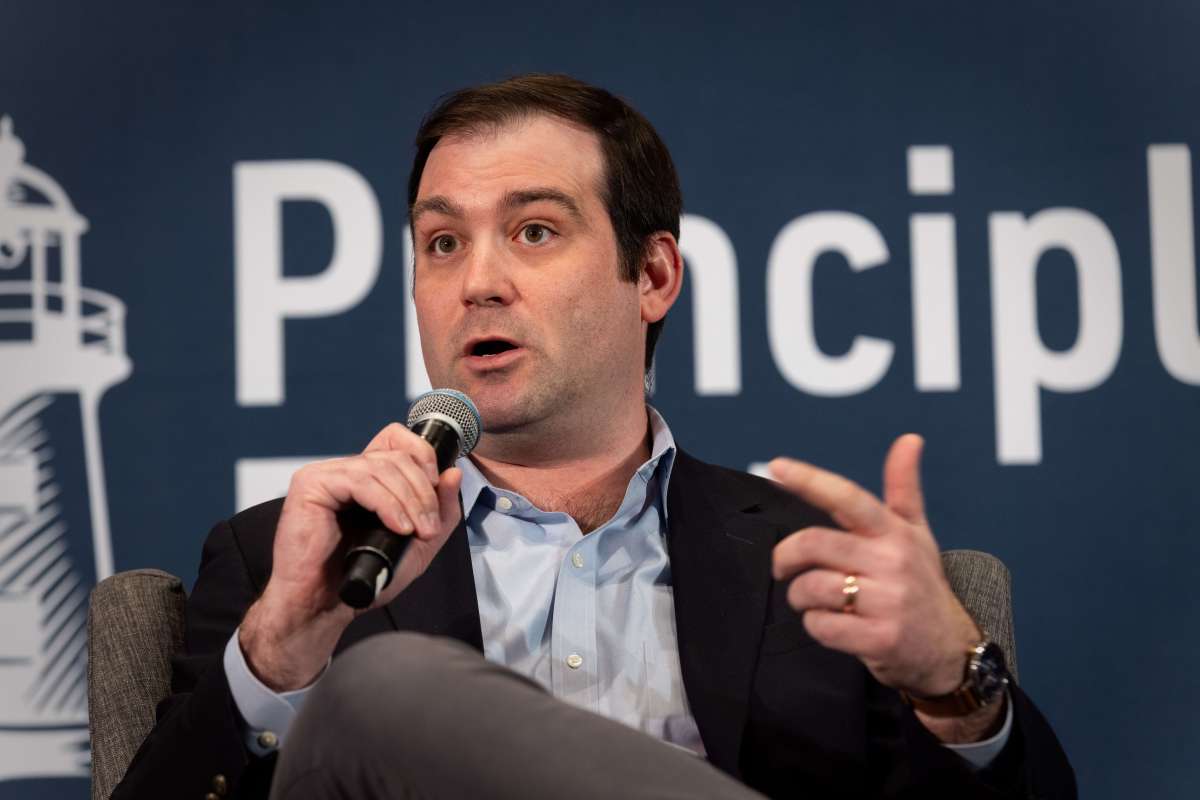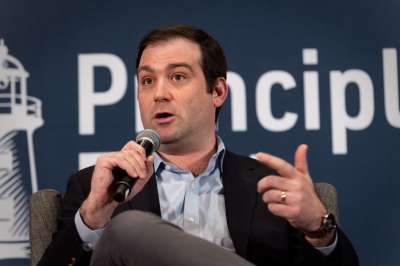Hey Dispatch readers,
Hope you all had a great Thanksgiving with friends and family, wherever you celebrated. It was great meeting so many of you at The Dispatch Summit in Washington a few weeks ago, and I loved reading through all your questions as I was writing this mailbag. Let’s jump right in!

On Political Coverage
Blair M Gardner: In your years covering Washington politics, what elected officials have most impressed you, and why? Is it a matter of legislative accomplishments, policy acumen, or leadership within their caucus? If possible, an example from each party would be welcomed.
This isn’t an easy one, since the more you cover politics and government, the better you understand how human our elected officials are—which makes them less impressive! But to try to answer your question, I’ll start by saying what I find myself impressed by: leaders who see the whole picture, understand the players and motivations and competing incentives, and act adroitly to accomplish their goals. So perhaps it’s no surprise that the names I keep coming back to are speakers of the House, who somehow find their way to the top job by earning the respect and loyalty of a majority-plus of their colleagues.
Nancy Pelosi, John Boehner, and Paul Ryan are all so different from each other in style, ideology, and goals, but each of them has impressed me because of how they understood their respective caucuses or conferences. They each channeled the different interests of their more than 230 members into governing agendas and executed those agendas with some success. In the divided Washington I’ve covered for my entire career, “some success” is a lot of success.
All three of these leaders also demonstrated limited tolerance for the “problem” members of their caucus/conference, usually on the far fringes of their parties. It didn’t always end well, as was the case with Boehner’s somewhat premature exit from office, but it is impressive when leaders stand up to their own side and tell the knuckleheads to knock it off. It’s all the more important to exert power on your own team during this populist time, when the incentives for attention outweigh the incentives for governing. The best leaders curb the former and tease out the latter.
H.W.: Based on your observations, how would you describe the 2024 election? Was it actually a “vibes” election? If so, what vibe was most influential?
The 2024 presidential election was both vibes-based and substantive. The substance side was pretty straightforward: inflation is a killer in politics, and voters will look to change it up when life gets too expensive. Democrats out, Republicans in. Simple as that.
The “vibes” part is much more complex, and I’m still working through my own understanding of it. Joe Biden was a bad vibe—he was just too old, too feeble-seeming, too out-of-touch. And when America saw that, on stage, in the consequential CNN debate this summer, the election might as well have been declared for Donald Trump right then and there.
Kamala Harris tried to turn the vibes her way, which is what all that talk of joy and “brat summer” and “we’re not going back” and American flags at the Democratic National Convention in Chicago was all about. And even though she lost in the end, I don’t think she did that bad of a job in the “vibes” department: Her replacement of Biden at the top of the ticket managed to make what was a blowout race competitive again. But she couldn’t keep up the momentum, performing poorly in a number of key moments. She didn’t do enough TV, radio, or podcast interviews, and she flubbed the few that she did. In the end, that was the ballgame.
Trump, on the other hand, is all about vibes, despite his campaign’s very disciplined messaging on the substance. From his infamous mugshot to the assassination attempt in Pennsylvania to his Madison Square Garden rally, the former president rode a vibe of badass, DGAF-ery. This, plus the nostalgia for the “good old days” before the pandemic, helped erase the stigma around Trump with voters.
On Food and Drink
DJElmore: Hey Mike! If you could step into the transporter and teleport to anywhere in the country for dinner, where would you go? What foods speak to your soul and make you happy?
This is gonna be a theme of this Mailbag: I can’t pick just one. Charleston, South Carolina; Boston; Sacramento (really!); Chicago; the Rio Grande Valley in Texas; Milwaukee; New Orleans.
I love good, local comfort food that you can’t get anywhere else. The runza in Nebraska, the cheesesteak in Philadelphia, the Cuban sandwich in South Florida, the hatch chiles in New Mexico, the cioppino in San Francisco. I love barbecue all over, from pulled pork in North Carolina to brisket in Texas to ribs in Memphis to anything in Kansas City. I’ve had terrific fusion food, like a restaurant in Atlanta that used ingredients and inspiration from Korean cuisine to make American-style barbecue. I also love local drinks like the Sazerac (which I’ve had at its namesake bar at the Roosevelt Hotel in New Orleans) and the Wisconsin old fashioned. Love a good local beer and wine, too!
America is such a big, wonderful place, and there’s no better way to appreciate that than through food. It’s one of my favorite perks about this job that I’ve been able to eat my way through so much of our country.
Just no thanks to Skyline Chili in Cincinnati.
George.Skinner: What’s your favorite tiki cocktail so far? I’ve found it’s hard to beat Don the Beachcomber’s original 1934 Zombie.
I really enjoyed the Zombie I had last year at a tiki bar in Maui. Great choice.
I’m still new to this and have really only dipped my toe into the tiki culture waters. I also mostly make them at home, so I’m a bit limited in my ingredients, which reduces the number of drinks I’ve tried. My go-to is the mai tai, in which I use Triple Sec instead of orange curaçao. I also don’t do the float of overproof black rum on top, because who has the patience for that?
There’s of course the classic daiquiri, the Singapore sling, and grog. But I’ve really gotten into making the Lauwiliwilinukunuku’oi’oi, which has lemon, pineapple, orgeat, Peychaud’s bitters, and rum. I like it better than the Humuhumunukunukuapua’a, which substitutes rum for gin. (Both of those drinks are Hawaiian names of fish, the long-nosed butterfly fish and the reef triggerfish, respectively.)
On Comedy, Music, and Literature
Linilulu: Who is your favorite stand up comic?
Richard Kennedy: Who are your favorite comedians? Would you distinguish the greats of the past from the young folk working today?
It’s always hard to pick favorites, because it often depends on what mood I’m in, what format (stand-up, podcasts, sketch, film/TV), and what I’m really looking for. I think Jerry Seinfeld perfected the art of observational stand-up comedy, and nobody comes close. David Spade is underrated both as a stand-up and as a comedic presence. I’ve really found myself falling in love with Jan Hooks and Phil Hartman and their work together on Saturday Night Live. Nobody has better chemistry in sketch comedy than those two.
They aren’t exactly young, but some relatively new stand-up comics who I enjoy are Nate Bargatze, Shane Gillis, and Mark Normand. They are all so different from each other in content and tone, but are united in having a specific and idiosyncratic rhythm. Stand-up is about the writing, but it’s also about the performance. Those guys get both.
My absolute favorite comedian, however, is Norm Macdonald. If I didn’t have work and family obligations, I’d be in danger of just scrolling through YouTube in perpetuity watching Norm clip after Norm clip. His video podcast that ran on YouTube (and is sadly no longer available there, though you can see plenty of clips all around the internet) was laugh-out-loud funny, as was his “Weekend Update” run on SNL, his sports show on Comedy Central, his numerous talk-show appearances, and his Netflix show. Here’s my all-time favorite Norm joke. We lost him too soon.
Christopher Lake: A question from a fellow Beatles fan, for more than forty years (I bought “Sgt. Pepper’s” in 1981, when I was 8!): Do you have a favorite album from, and/or era of, the group?
When I first got into the Beatles in middle school, I was immediately taken in by the hodgepodge that was the White Album (officially known as The Beatles). After a few years, however, I recognized how terrific Abbey Road was, not only for the side two medley but for the production values on what really should be considered the final Beatles album. Paul’s bass! George’s songwriting! John’s best work in years! Ringo is there too!
Sgt. Pepper’s Lonely Hearts Club Band was never my favorite, and in recent years I really gravitated toward Revolver, its immediate predecessor. It’s everything people love about Sgt. Pepper, but much better.
Lately, though, I’ve really been into A Hard Day’s Night. The band’s early period gets forgotten because of all the groovy final years, but the Beatles were doing some innovative stuff from the very beginning, experimenting with chords, meter, and instrumentation in genius ways. A Hard Day’s Night was really kind of the peak of that. The songs from that album just get into my head.
Clifford Luebben: Who is your favorite character out of Tolkien lore? And is there a part of the stories that have surprised you in how relevant it was/is to your profession?
Hands down, Gandalf has the best lines of dialogue of any of Tolkien’s characters, and Samwise Gamgee is truly the heart and soul of The Lord of the Rings trilogy. I wish there were a lot more about Eärendil, the final hero of The Silmarillion who heroically sails to Valinor to plead for the Valar’s help in defeating Morgoth, and it pains me that we’ll never have a full, finished version of the story of Eärendil’s father, Tuor, and the fall of the secret elven city of Gondolin. I also love Tolkien’s villains, particularly Ungoliant and the Witch-king of Angmar. But my favorite character may be Faramir, for his nobility and goodness.
I don’t think there’s anything from LOTR specifically relevant to my profession, but the themes of Tolkien’s Middle-earth legendarium have a lot to teach us about our world and life. Tolkien was both a committed medievalist and a modern 20th-century man (despite how he might have described himself). He was shaped by the horrors he experienced on the western front in World War I, and he recognized that the pre-modern world that all the smartest minds were trying to “progress” away from actually had a lot of wisdom that could address the problems of modernity.
For my part, the final approach that Frodo and Sam make across Mordor to Mount Doom to complete their quest is a remarkable demonstration of two people putting their duty—to those who assigned it to them, to those they love, to each other, and to those who will never know what they did or what sacrifices they made to do it—above their own physical desires and needs. They are starving, they have no water, they are in constant mortal danger, and the One Ring is weighing on Frodo so heavily he can barely move. Who could blame them if they stopped, if they turned around, if they gave up, if they just chose to lay down and die? But that duty compels them on, and it just so happens to have put them in the right place to help destroy the Ring.
Another good lesson is pity. Tolkien always shows how pity toward others, even those who “deserve it” the least, ends well. As Gandalf says when Frodo laments that Bilbo did not kill Gollum, “The pity of Bilbo may rule the fate of many.” And it was true, because it was not Frodo who willingly gave up the Ring at the Cracks of Doom but the greed of Gollum that ultimately destroyed it. “Even the very wise cannot see all ends.”
On TV
Faraday: Presupposing the existence of a blooper reel from your tenure at CNN, is there anything you like to get out there ahead of its release?
No comment.






Please note that we at The Dispatch hold ourselves, our work, and our commenters to a higher standard than other places on the internet. We welcome comments that foster genuine debate or discussion—including comments critical of us or our work—but responses that include ad hominem attacks on fellow Dispatch members or are intended to stoke fear and anger may be moderated.
With your membership, you only have the ability to comment on The Morning Dispatch articles. Consider upgrading to join the conversation everywhere.